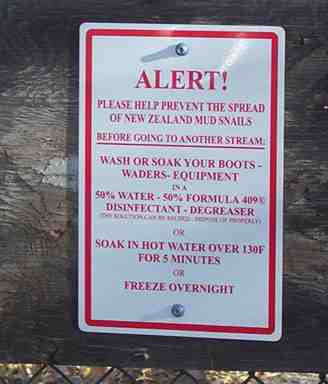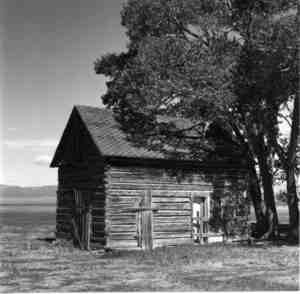Brief by Central Staff
Wildlife – March 2006 – Colorado Central Magazine
The Colorado Division of Wildlife wants you to wash your gear after you’ve been in the river. The purpose is not sanitation, but preventing the spread of an alien invertebrate — the New Zealand mud snail.

The critters are tiny — at least a dozen will fit atop a penny — and they arrived in the United States about 20 years ago, probably in shipments of fish eggs imported by fish farmers along the Snake River in Idaho. Since then, they’ve spread across the waters of the West, reaching every state except New Mexico.
In their native New Zealand, their population is kept in check by predators and parasites that don’t exist in our country, where they have reached densities of 625,000 per square yard in some streams in Yellowstone National Park.
The snails’ success in colonizing some streams has wildlife authorities worried. For one thing, the New Zealand mud snails displace native snails. And they also “consume a lot of algae that would go to mayflies, stoneflies, and caddis flies,” according to Dan Gustafson at the University of Montana, and that reduces the food supply for insect- eating trout.
Trout do eat some snails, but a study of rainbow trout at the University of Utah showed that a steady diet of New Zealand snails killed a third of the fish while the survivors suffered severe weight loss.
Researchers are looking for a biological control, such as a bacteria that would kill only these snails. But in the meantime, the plan is to persuade people to clean their gear, so that they’re not transporting the New Zealanders into new waters.



